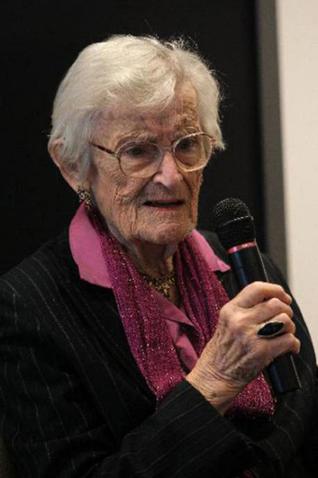
The people of Mangala, a village in Mandya district, chose to re-christen T. Scarlett Epstein “Kempamma” when she came to their village in the ’50s. They were unaware that the first name of the young woman roughly translated to the Kannada variant they had picked and that her study on their village was to bring her international renown.
Dr. Epstein (OBE), who passed away in U.K. at 91 on April 27, had a lasting connection with Mangala and Kalenahalli where she stayed in the ’50s during the course of her Ph.D on the socio-economy of Mysore villages, with renowned sociologist late M.N. Srinivas as her guide. She kept in touch with Mangala all her life, her last visit being in 2010. The villagers held a condolence meeting when they heard of her death.
From AustriaDr. Epstein’s journey to academia was nothing short of an adventure. The social anthropologist and economist was a Jewish refugee from Vienna who left Austria in 1938, as a high school girl, after Germany annexed it during World War II. She eventually made her home in the UK, working as a labourer in a clothes factory as she studied, slowly gaining a foothold in academia, she reveals in her autobiography, Swimming Upstream. Her visit to Mangala was the first leg of her long and illustrious journey.
Manjamma, an elderly resident of Mangala, recalls Dr. Epstein as someone who was always interested in studying the routine activities of rural women. “She learnt to put rangoli and got used to our ragi mudde and naati chicken curry,” she says.
Though she later worked in others parts of the globe and published over 15 academic works, her link to Mangala was special, recalls T. Thimme Gowda, a former bureaucrat who hails from Mangala and worked with Dr. Epstein on her field studies. “I was a boy of seven when she first visited our village,” he says.
In KannadaHer Ph.D work, as well as two of her important works rooted in Karnataka — ‘South India Yesterday, Today and Tomorrow’ and ‘Village Voices’ — have been translated into Kannada and brought out by the University of Agricultural Sciences, says Mr. Gowda.
“When she visited the village in 2010, she was worried about the large-scale migration because of agrarian distress and wanted to write about it and also do something to prevent it,” recalls Mr. Gowda.
source:http//www.thehindu.com / The Hindu / Home> News> Cities> Bangalore / by Bageshree S. and M.T. ShivaKumar / Bangalore – Mandya, April 29th, 2014